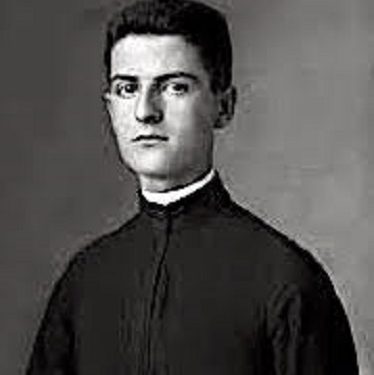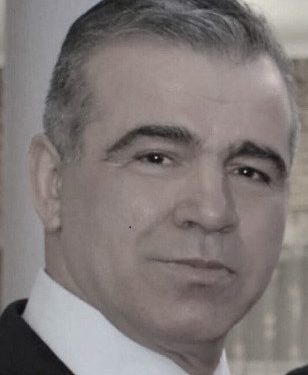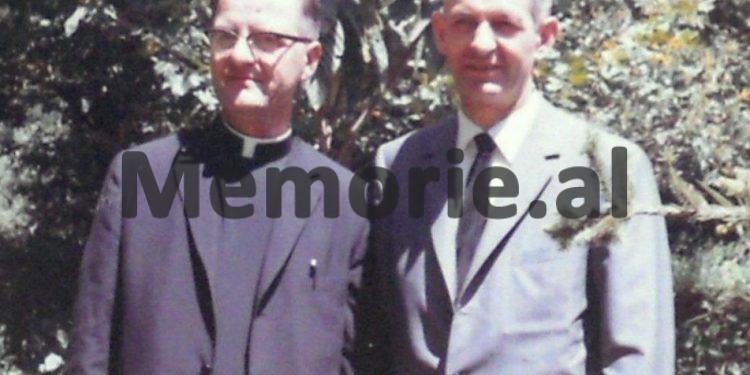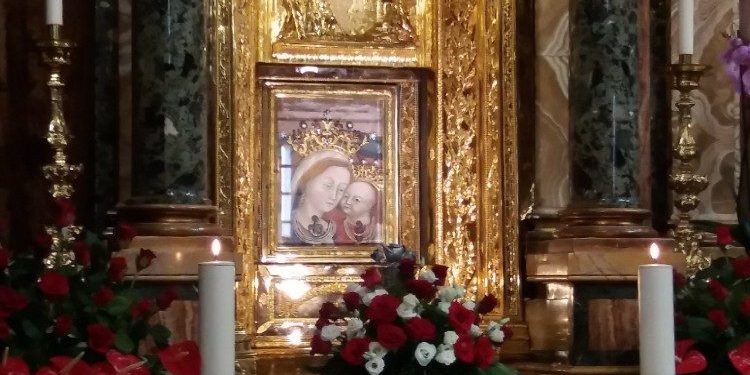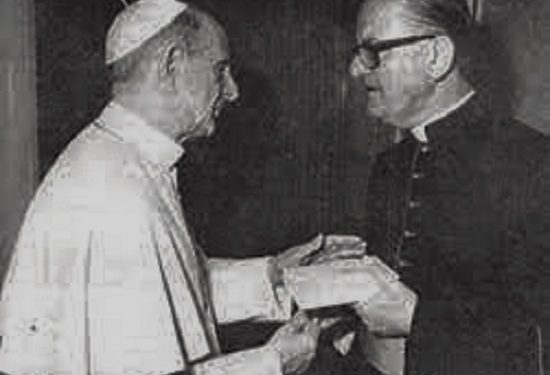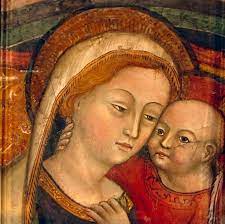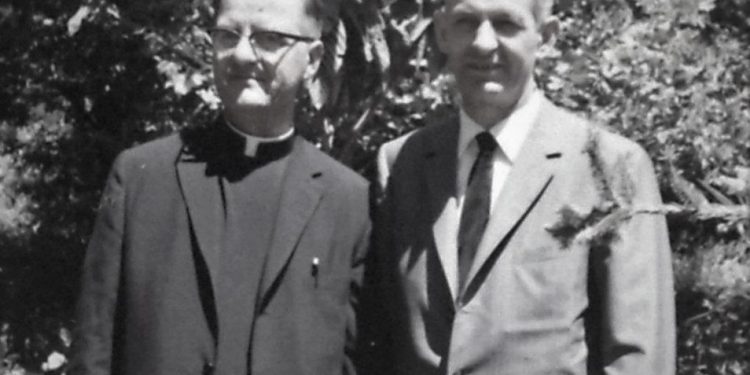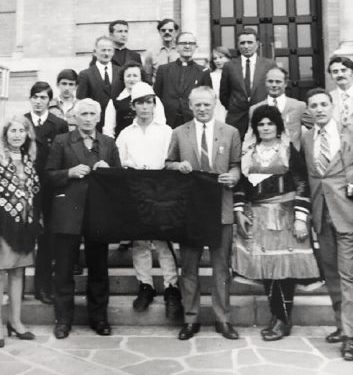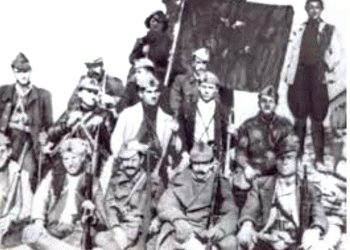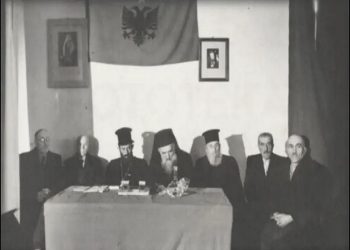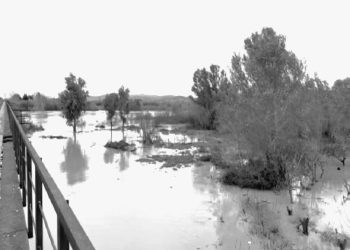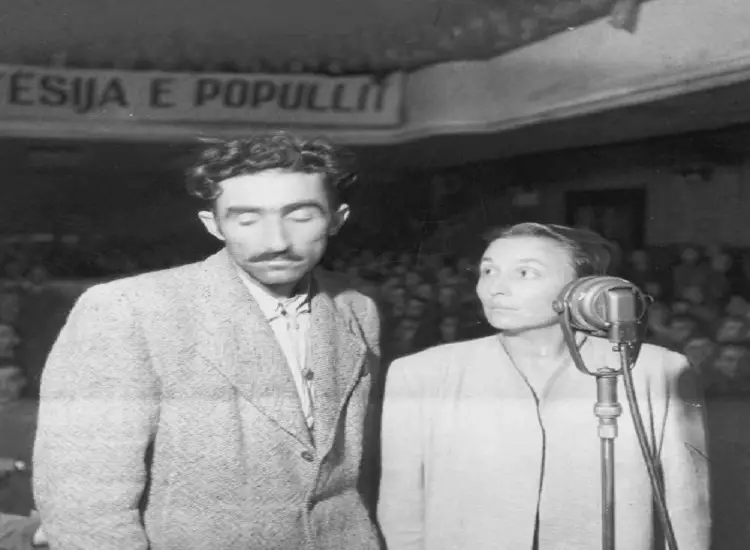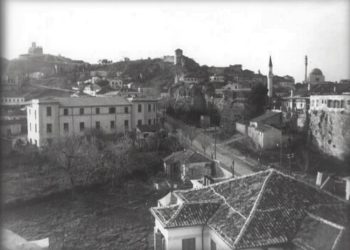By Prend Ndoja
The role of the Albanian church “Zoja e Shkodra” in the USA, on the national issue –
Memorie.al /Some of those who did not agree with communism in Albania, experienced the most inhuman suffering under the clutches and criminal cruelty of that regime, or were executed without mercy. While another part fled. We all know the danger of such an act. But they had a knife in their bones and, at the moment of escape, apart from their exhausted selves, they left everything else behind, their family, relatives, and homeland. They took with them the uncertainty of the future, but also the hope that arose as soon as they crossed the border, the weight of suffering and longing, the memories of a difficult life, the tears of their mother and family. And on their cheeks a tear that did not dry easily, not even the smell of the long journey.
The black communist shadow was devouring human lives, seeking the leaders of the resistance, especially the leaders who had never been subdued before in the lands of Mirdita. In the Holy Mountain of Mirdita, the sword of the “red devil” had entered, the tremors resembled a high-scale earthquake, which demolished mountains and split the rocks of the mountains; it was knocking down oak trees with centuries-old roots, which had withstood all previous storms and times. It was 1951, when over 200 troops of communist forces had surrounded Mirdita. The order had been given directly by the communist leader, Enver Hoxha, to liquidate the village priest, Dom Zef Oroshi. To carry out that order, the notorious man, the so-called “Lieutenant Baba” (Hodo Habibi from Kuçi Vlorës), was charged with comrades.
On that fateful day, during the mass ceremony, Dom Zef Oroshi had sensed from outside the church walls that death was waiting for him. To avoid death, he cut short his sermon and ended the mass prematurely. While outside, the agents of the Persecution Forces were waiting to handcuff him, or even shoot him, staging his escape. But the intelligent priest, helped by his fellow villagers, left through a secret door, fled to the mountains and joined the anti-communist forces of Mirdita.
Then later he crossed the state border to Kosovo and, to Italy, to finally leave, towards the USA. Until 1969, Albanians of the Catholic faith in New York, held prayers and religious ceremonies in American Catholic churches, in different neighborhoods of the city and its surroundings. During that year, under the direct care and leadership of the Mirdita high priest, Dom Zef Oroshi, the first Albanian Catholic Church in America was founded, at this address: 4221 Park Avenue, Bronx, New York. The first mass was celebrated on Christmas Eve, the same year.
During the 1970s, trips from Albania to America were rare. On that long journey, there were more travelers from Albanians living in the territories of Montenegro. With the arrival of Dom Zef Oroshi in the USA, the connection with high figures of the state of New York began to take its rightful place, which was undoubtedly for the good of the nation and, in particular, of our community in the great American metropolitan city. The presentation of our people in the eyes and minds of the locals began to take on the appearance it deserved. During these years, around the church of “Our Lady of Good Counsel”, there was a small but unique community, and almost everyone knew each other.
The establishment of the first Albanian Church in America was based on sound religious and national foundations. Dom Zef Oroshi had a brotherly closeness with all his brothers and sisters of the same nation, regardless of their faith or region of origin. Because many of them had fought communism, they continued to remain united even in exile. Dom Zefi, after the death of Abaz Kupi in 1977, prayed at the Holy Mass every week for two consecutive years for the soul of Abaz Kupi. He also prayed for the soul of Mit’hat Frashëri. He also visited their graves frequently. On the slab of Abaz Kupi’s grave, the number 444 was carved, symbolizing the Lezha Assembly of 1444.
The brothers of the Islamic faith also participated in the collection of funds for the purchase and construction of the church. The echo of such brotherhood would be heard many years later in Shkodra, on the eve of the fall of communism, when the priest released from prison, Simon Jubani, held the first mass under the siege of the State Security at the small church of Varreve i Rrmajit. But that siege did not prevent hundreds and hundreds of Catholic, Muslim and Orthodox believers of Shkodra from going and attending that mass. The same thing happened in that same city a few days later, when a religious ceremony was held at the Lead Mosque and believers of the three faiths in Shkodra participated. The Lead Mosque is located near the Rozafat Castle, at the entrance to Shkodra. On the same side of the hill on which this castle stands, there is also the Church of “Zoja e Shkodra”. This is also a testimony to the brotherhood between religious beliefs among Albanians.
In many ways, the Church of Our Lady of Shkodra in New York gave the appearance of an Albanian center, where emigrants found a part of their homeland. There they organized festive evenings, after discussions that were held about the extreme troubles of the homeland and their families in their countries. The stages were filled with national symbols, Albanian music and dance. The church was visited by many high-ranking local personalities, as well as personalities of our nation, such as Mother Teresa, King Leka I, with his family, etc. In the early 1960s, in America Dom Zefi was a close friend of Fan S. Noli.
The Pan-Albanian Association “Vatra”, founded by Noli, was truly a hearth that warmed all Albanians and brought them together under a common roof. Throughout all those years and until now, “Vatra” continued to maintain its excellent connection and cooperation with the Albanian Church. At “Vatra” and at the newspaper “Dielli”, the national spirit was kept alive in reality and with an unwavering vision. There, the nation and religious beliefs embraced each other like angels. Therefore, “Vatra” and the Church appeared together in many national manifestations.
As I have emphasized in my book “The Path of the Exile”, the exile of those years was heavy. The innocent exiles were condemned to the heavy weight of exile at that time. They were forged through the flashes of difficult times. In their minds, the weight of their brothers and sisters left under the dangerous threat and fierce communist persecution weighed heavily. Many of them had lost hope that one day they would meet their families and their homeland. In such a state, they ideally remained strong, not shaken by suffering and longing. They worked honestly to integrate into American life, they stuck together, and they helped each other, being there for each other in good and bad times.
Their souls ached when they heard about the suffering of their brothers and sisters in their homeland. They embraced their homeland from afar, and even more they hated communism as the cause of suffering. At the end of the 80s, invited by L. Ndreca, at Ramiz Dani’s bar in “Queens”, together with L. Nokaj, originally from Laçi Kurbinit, who had fled Albania since the early days of communism, we participated in a gathering, where many of the fighters and leaders who had fought against communism in Albania participated. When you looked at them, you could see their courage to fight communism, as well as their respect for the authority of their superiors present.
As the years pass, it is known that the heart loses the former rhythm of youth; it feels the weight of the years spent on the road in difficult times. So too, for Dom Zef Oroshi, the saint with a heart of stone, in his old age, it had become like a sponge left behind by the flame of youth. One day, in the last years of his life, he was very sad about his two brothers, his sister and Albania. He was walking along the shores of the Ocean around New York. Somewhere he stopped and, pointing his hand to the South, in the space above the waves of the sea, he asked his companion: –
“Tomë, do you think Albania is there?” And a smile lit up his face like a ray of sunshine, as in a moment, it seemed to him that he had brought Albania closer to himself. But Albania was unreachable; it was lost far away, beyond the ocean and the mountains, in the iron siege of the communist dictatorship. He stopped and after a deep breath, cursed the enemies who inflicted those wounds on his people and country and burst into tears in a loud voice, mentioning his family members and his homeland.
Dr. Monsignor Zef Oroshi retired in 1985. In 1973, Dom Rrok Mirdita had come from Tivar to the USA. From the position of assistant priest, which he had exercised for several years before, he became a full substitute for Dr. Monsignor Zef Oroshi’s work. A few years after retirement, with an ocean-like longing for his homeland and family, Dom Zef Oroshi passed away on 15.03.1989. Dom Rroku continued as a wonderful priest, on a foundation well prepared by his predecessor, Dr. Monsignor Zef Oroshi.
Dom Rroku was committed to preserving our Christian tradition of faith through preaching, which had been fought with the closure of churches by the communist government. In other words, to bring and cultivate our old Christian tradition in a new continent. He held gatherings and manifestations of a religious and national character. On September 26, 1989, land was purchased for the construction of the new church “Our Lady of Shkodra” in Hartsdale, New York. Later, Cardinal O’Connor declared the first Albanian Catholic parish “Our Lady of Shkodra” in New York. The symposium held in honor of the anniversary of Pjetër Bogdani was also attended by Dr. Ibrahim Rogova, who from that moment on was an inseparable visitor to the Albanian Catholic Church in New York whenever he came to the USA.
Don Rrok Mirdita, on 25.12.1992, at the age of 53, was appointed Bishop of the Archdiocese of Tirana-Durrës. After successful service in that noble and holy duty, he died on 7 December 2015, at the “Mother Teresa” Hospital in Tirana. With the departure of Dom Rrok Mirdita from New York to Albania, his place was taken by Dom Pjetër Popaj, who long ago was an assistant priest at the “Zoja e Shkodra” Church. Dom Pjetër Popaj, although he continued a vision of the past, brought with him the spirit of the present.
He was blessed by Mother Teresa and I think he is the only Albanian in whom Mother Teresa had felt the grace of God. He was sitting on his knees, kissing her hands and asking for her blessing. Don Pjetri’s sermons reflect simplicity; the low tones of his voice are strengthened by reason and the precision of his words. The horizon of his knowledge resembles well-stocked libraries with writings and books, from the beginning onwards.
From him, I have often heard these words:
– “The Albanian people have given ample proof that they love God”.
– “They have given ample proof that they love their homeland”.
– “There is no Albanian in the world who does not love their homeland”.
– “There is no country in the world to which better songs and prayers are dedicated than those that Albanians dedicate and sing to their country”.
– “No land in the world can produce better fruits than our land for us”.
– “We have not chosen to be Albanians; it is a gift from God. We must all cultivate this gift together”.
– “Any attempt at division is against the gift that God gave us”.
– “No success can be achieved if we are divided”.
– “Let us pray to God, as a sign of gratitude that we have each other”.
In the hall of the Church of “Our Lady of Shkodra”, religious and national manifestations are held, as well as gatherings for various nationwide issues, or for our community in New York. The Church of “Our Lady of Shkodra”, we can call the Albanian Church – an open door for every person who expresses the desire to approach the church and the nation. With the organization of the Albanian Church of New York, there are frequent cases when the joint mass is celebrated there by preachers of the Catholic, Islamic, Orthodox and Bektashi religions. I have often participated in the celebration of such masses and I can say that it was a great pleasure, but also a national pride, to see such cases that presented religious harmony before all other nations. This is truly an example that we can be proud of and that Pope Francis also emphasized during his visit to Albania.
When we did not have our senators and our national image was threatened by our mistakes, Dom Pjetri was in front of the media with convincing facts, showing the world that we are not terrorists or racists, as Albanians were sometimes claimed to be. The media had begun to hastily give a very harmful image for the image of our nation, but Dom Pjetri was there with his presence, explaining the suffering that our people had experienced, oppressed under ruthless occupying rulers. He said: “As a people, we are always close and by the side of the peoples who come from the origin of suffering and slavery, because we were also like that, captives. And so it continues to be a part of our nation. So, in a word, nationalism is not a phenomenon that exists in our national community”.
Protecting and creating such an atmosphere around the Church has a great impact on the unity of our compatriots in New York. The Albanian Church “Our Lady of Shkodra” in New York is a nucleus closely connected to the source of our national goods, and at the same time, it contains around itself, alive, what we, the emigrants, left behind when we emigrated. The activities in the field of national culture are countless, starting from the church choir, which began in our native language in the 60s, to today’s “Rozafat” at the “Mother Teresa” Center. In this Center, in addition to preparing young talents for the use of our national musical instruments, numerous theatrical performances and concerts are also prepared. For years, various festivals have been held and continue to be held for the New York community, as well as those with nationwide content, where artists from all Albanian regions participate.
On festive days, Washington and the largest centers, especially New York, are covered with Albanian flags. It is an honor and pride when you see that our national flag is kept in the offices of senators and presidents and raised high by their hands, for our national holidays. This is respect for our nation, but also for the Albanian community in America, which has become not only an important economic factor, but also a unifying factor, a factor that has raised the image of our country on the American continent. Today, to say that you are Albanian in New York is undoubtedly a matter of pride. Many other nations look at us with envy for the achievements and high image that we have given to our people and nation. The rapid education and emancipation in all spheres of Albanians in America is a rapid achievement of the good that today’s time offers us, which served and is serving our nation.
If politics in our lands continues to be an obstacle to the development of a prosperous life by the standards of the time, the Albanian community in America is an open door to avoid evil. I think that in the future we can rely on the model of the functioning of the state of Israel, which is guided by the heads of those prepared and wise people they have in America. The role of the Albanian Church “Our Lady of Shkodra” in New York, with the work and contribution given to its compatriots, to the nation and to the state of New York itself, is a good example, it is kindness, it is hope, it is pure food for the cells and marrow of our nation. /Memorie.al




